
The 1976 United States Senate elections was an election for the United States Senate that coincided with Democratic Jimmy Carter's presidential election and the United States Bicentennial celebration. Although almost half of the seats decided in this election changed parties, Carter's narrow victory did not provide coattails for the Democrats, and the balance of the chamber remained the same.

The 1970 United States Senate elections was an election for the United States Senate, taking place in the middle of Richard Nixon's first term as President. The Democrats lost a net of three seats, while the Republicans and the Conservative Party of New York picked up one net seat each, and former Democrat Harry F. Byrd Jr. was re-elected as an independent.
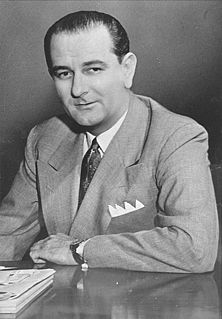
The 1958 United States Senate elections were elections for the United States Senate which occurred in the middle of President Dwight D. Eisenhower's second term. As is common in midterm elections, the party in the White House lost seats, but losses this year were more than usual, perhaps due to the high unemployment of the Recession of 1958. The Eisenhower Administration's position on right-to-work issues galvanized labor unions which supported Democrats. The launch of Sputnik may also have been a factor.
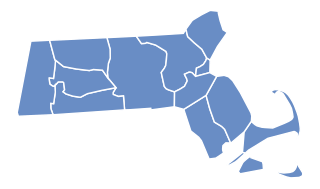
The 1976 United States Senate election in Massachusetts was held on November 2, 1976. Incumbent Democratic U.S. Senator Ted Kennedy won re-election to his third full term.
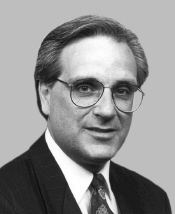
The 2000 United States Senate election in Pennsylvania was held on November 7, 2000. Incumbent Republican U.S. Senator Rick Santorum won re-election to a second term. As of 2019, this is the last time the Republicans have won the Class 1 Senate Seat from Pennsylvania.
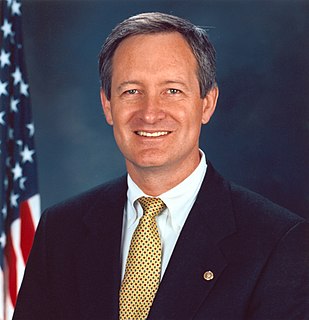
The 2004 United States Senate election in Idaho took place on November 2, 2004 alongside other elections to the United States Senate in other states as well as elections to the United States House of Representatives and various state and local elections. Incumbent Republican U.S. Senator Mike Crapo ran for re-election and won a second term in office in a landslide after no one filed for the Democratic Party nomination. Democrat Scott McClure conducted a write-in campaign but only received 4,136 votes, or about 1% of those cast.

The 1998 United States Senate election in Alaska was held November 3, 1998. Incumbent Republican United States Senator Frank Murkowski sought re-election to a fourth term in the United States Senate. Murkowski easily won re-election against Democratic nominee Joseph Sonneman, a perennial candidate, earning nearly 75% of the vote.

The 2000 United States Senate election in Utah took place on November 7, 2000. Incumbent Republican U.S. Senator Orrin Hatch won re-election to a fifth term.
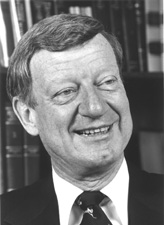
The 1994 United States Senate election in Delaware was held November 8, 1994. Incumbent Republican U.S. Senator William V. Roth won re-election to a fifth term. As of 2019, this is the last Senate election in Delaware won by a Republican.

The 1988 United States Senate election in Delaware was held on November 8, 1988. Incumbent Republican U.S. Senator William V. Roth won reelection to a third term.
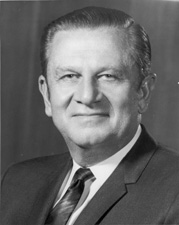
The 1970 United States Senate election in Nevada was held on November 3, 1970. Incumbent Democratic U.S. Senator Howard Cannon won re-election to a third term.

The 1976 United States Senate election in Pennsylvania was held on November 2, 1976. Incumbent Republican U.S. Senator and Minority Leader Hugh Scott decided to retire. Republican John Heinz won the open seat.
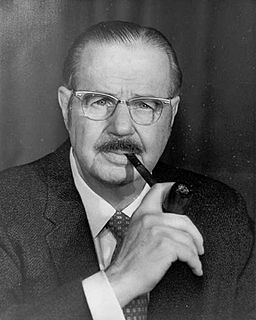
The 1958 United States Senate election in Pennsylvania was held on November 4, 1958. Incumbent Republican U.S. Senator Edward Martin did not seek re-election. The Republican nominee, Hugh Scott, defeated Democratic nominee George M. Leader for the vacant seat.

The 1964 United States Senate election in Pennsylvania was held on November 3, 1964. Incumbent Republican U.S. Senator Hugh Scott successfully sought re-election to another term, defeating Democratic nominee Genevieve Blatt.
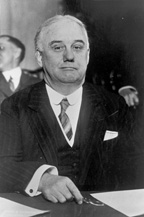
The 1926 United States Senate election in Pennsylvania was held on November 2, 1926. Incumbent Republican George W. Pepper, who was appointed following the death of Boies Penrose, was defeated for re-nomination by William Scott Vare. Vare won the election, defeating Democratic opponent William Bauchop Wilson. He was not permitted to assume office, however, until an investigation was conducted into possible election fraud and corruption. Vare was ultimately unseated in December 1929 by the Senate, following charges of corruption.

The 1930 United States Senate special election in Pennsylvania was held on November 4, 1930. Joseph R. Grundy, incumbent Republican appointed to fill the vacancy created by the unseating of William Scott Vare, was defeated for re-nomination. The Republican nominee, James J. Davis, defeated Democratic nominee Sedgwick Kistler to win the election.
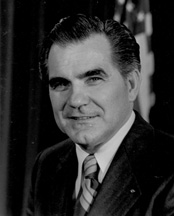
The 1972 United States Senate election in Virginia was held on November 7, 1972. Republican U.S. Representative William L. Scott defeated incumbent Democratic Senator William Spong, Jr.. Scott was the first Republican U.S. Senator from Virginia to be elected in over a century, as the most recent Republican Senator was John F. Lewis, who had held the seat during the Reconstruction era.

The 1970 United States Senate election in Virginia was held on November 3, 1970. Incumbent Senator Harry F. Byrd Jr. was re-elected to his first full term after winning a race 4 years earlier to finish the remainder of his father's term.


















